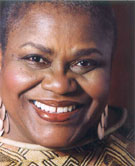A Quote by Rollo May
In any discussion of religion and personality integration the question is not whether religion itself makes for health or neurosis, but what kind of religion and how is it used? Freud was in error when he held that religion is per se a compulsion neurosis. Some religion is and some is not.
Quote Topics
Related Quotes
The incipient magician will confess his faith to a universal religion. He will find out that every religion has good points as well as bad ones. He will therefore keep the best of it for himself and ignore the weak points, which does not necessarily mean that he must profess a religion, but he shall express awe to each for of worship, for each religion has its proper principle of God, whether the point in question be Christianity, Buddhism, Islam or any other kind of religion.
How can you have the religion of the sovereign be the religion of the state if the sovereign belongs to many religions? And it's at that point, I think, historically, that you start to see people saying maybe the state should not associate itself with any religion. Maybe there shouldn't be any official religion.
What our view of the effectiveness of religion in history does at once make evident as to its nature is--first, its necessary distinction; second, its necessary supremacy. These characters though external have been so essential to its fruitfulness, as to justify the statement that without them religion is not religion. A merged religion and a negligible or subordinate religion are no religion.
I suspect that religion is a necessary evil in the childhood of our particular species. And that's one of the interesting things about contact with other intelligences: we could see what role, if any, religion plays in their development. I think that religion may be some random by-product of mammalian reproduction. If that's true, would non-mammalian aliens have a religion?
The one eternal religion is applied to the opinions of various minds and various races. There never was my religion or yours, my national religion or your national religion; there never existed many religions, there is only the one. One infinite religion existed all through eternity and will ever exist, and this religion is expressing itself in various countries in various ways.
Art is not a substitute religion: it is a religion (in the true sense of the word: 'binding back', 'binding' to the unknowable, transcending reason, transcendent being). But the church is no longer adequate as a means of affording experience of the transcendental, and of making religion real - and so art has been transformed from a means into the sole provider of religion: which means religion itself.




































